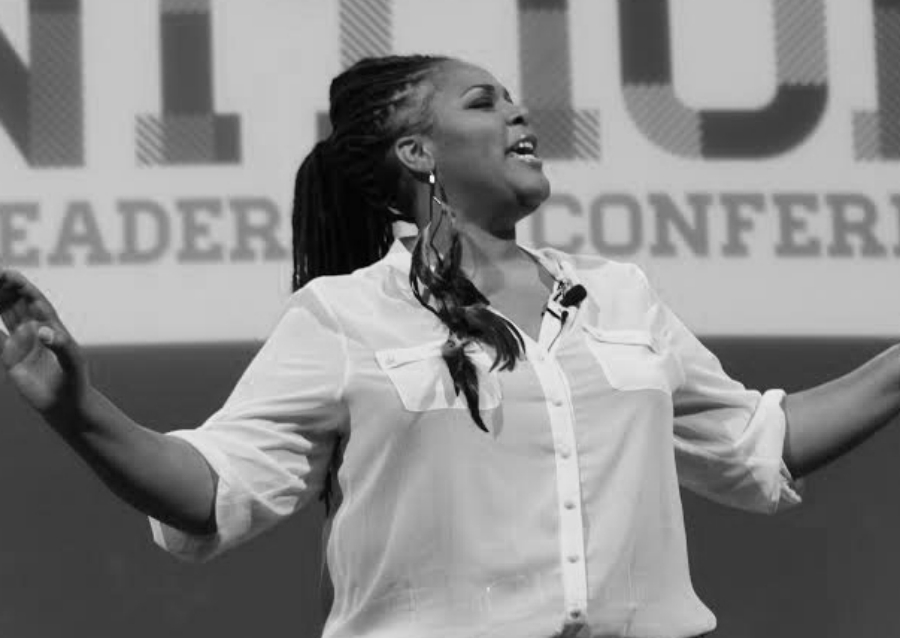Wherever You Are Is Exactly Where You Need To Be
This piece originally appeared on The Well, Jopwell's editorial hub.
When I was coming of age, social media didn’t exist. We had computers, but we mostly just used them to play Oregon Trail or The Sims. Myspace changed everything. Suddenly there was this pressure: Were you popular enough (i.e. Did your page make you look cool enough to be in someone’s “Top 8”)?
This also really marked the first time regular people connected with celebrities; suddenly you might “know” someone linked to a famous singer or actor, and your connection could be apparent to others and elevate your own status. This is also when the word “friend” began to lose its currency. We started calling everyone – even people we’d never met before – a “friend.”
It was actually a huge relief when Facebook first came along. Every profile looked the same, so you no longer had to worry as much about being outdone or staying relevant. Of course, the one-upmanship did eventually trickle down, though. As Facebook’s features evolved, so too did the opportunity to curate and share perfect-looking lives. One example that comes up a lot: We all have friends who we hang out with offline, and sometimes we’re privy to things like when one of them is going through a hard time. So when that same friend posts, “Everything is really good! #mybreakfast #hummus #kale” on Instagram, you’re thinking, ‘Wait a minute … You were on my floor last night saying you couldn’t go on.’
I understand why most people don’t want to broadcast their failures alongside that photo of them in Napa taken with really flattering lighting. But as viewers, we need to understand what we’re looking at. It’s important to recognize that so much of what we share on social media — from our profile pictures to our bios — has been put through a filter. There’s this big disconnect between what we think other people are accomplishing and what’s real. It can make us feel uncomfortable with our own achievements and force us to question whether we’re “successful” enough.
There’s always something else to covet or someone else’s perfect moment to envy. It can be a very unhappy way to live.
As social media has evolved, so has the need for us to understand what we’re looking at through everyone’s filters. We have a hard time distinguishing between our perception vs. reality.
Here are a few understandings I like to come back to in order to keep moving forward.

1. You are enough.
When we’re constantly being flooded with other people’s highlight reels, we start to feel like our own accomplishments aren’t enough. They are. I’ve been running a startup for the last two years, and it has been among the most humbling and hardest things I’ve ever done.
Sometimes people will say to me, “You’re such an inspiration.” While I want to be emotionally healthy enough to say “thank you” and move on, I actually feel nervous. I can’t help but think about all of my pitfalls and the many mistakes I’ve made.
I wonder what they would think if they knew about those things. When you are in a position where you are constantly being evaluated, you start questioning so many things – even things like your integrity and your morals that you know in your own heart to be true. Know that it’s OK to question yourself and have doubts. Acknowledge them, but then keep plugging. That’s how you will continue to grow.
2. Just because people don’t broadcast their struggles doesn’t mean they don’t have them.
Don’t measure the success of whatever you’re doing against how your peers are doing. If I am using my peers’ success as the standard gauge of success for my own business, I am failing.
Since people tend to mostly share their highlight reels and success stories — except for maybe a one-off story about a challenge they faced way back when that they are bringing up after the fact to demonstrate how far they’ve come. We have to remember that people aren’t necessarily talking about all the hard stuff that happens on the way to being successful.
3. Our stories don’t just start and end.
No one talks about Henry Ford filing bankruptcy a bunch of times before making it, but those are the stories we really need to keep us going when we start doubting ourselves. Someone’s story could start with “I’m homeless and living in my car” and turn into “I won a Grammy” or “I went public with my company” – huge and extreme things like that.
That’s why, whenever I start to panic because I’m not where I thought I was going to be at this point in my life, I remind myself that my story’s not over. I’m still in the middle of it, and that means a lot of success (and failure!) is still ahead of me.
4. Wherever you are is exactly where you’re meant to be.
Every day, I tell myself, “There is no need to hurry. You are not late. Whatever is yours will be yours. No one can steal your opportunity because it doesn’t belong to them. Wherever you are is exactly where you’re meant to be.” As we journey through our careers and our lives, we can expect there to be roadblocks and challenges, along with hopefully some great “wins” and rewards.
We can’t anticipate what exactly is going to happen, but we can control how we react to where we are, even when we haven’t met our own expectations or don’t feel as satisfied as our newsfeeds suggest. I love what Winston Churchill said about success – that it is “just going from one failure to another without losing momentum.”
I think we can all manage that.
Shine is supported by members like you. When you buy through links on our site, we may earn an affiliate commission. See our affiliate disclosure for more info.

